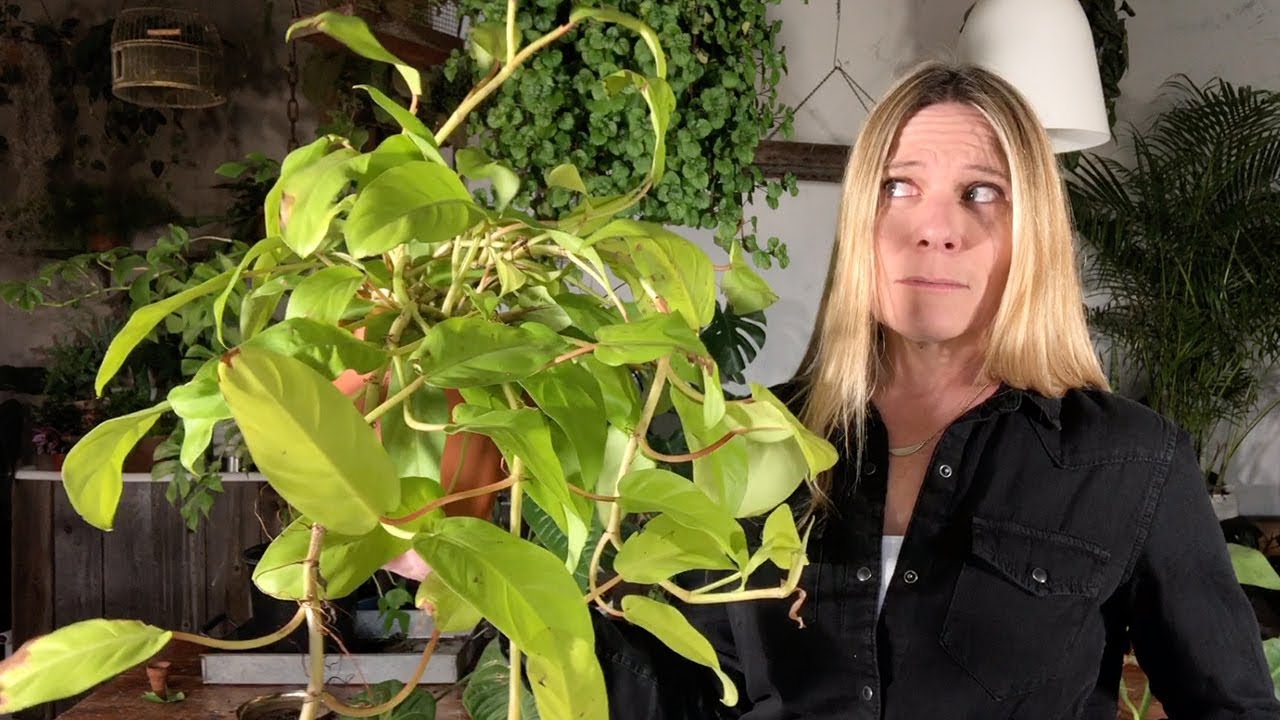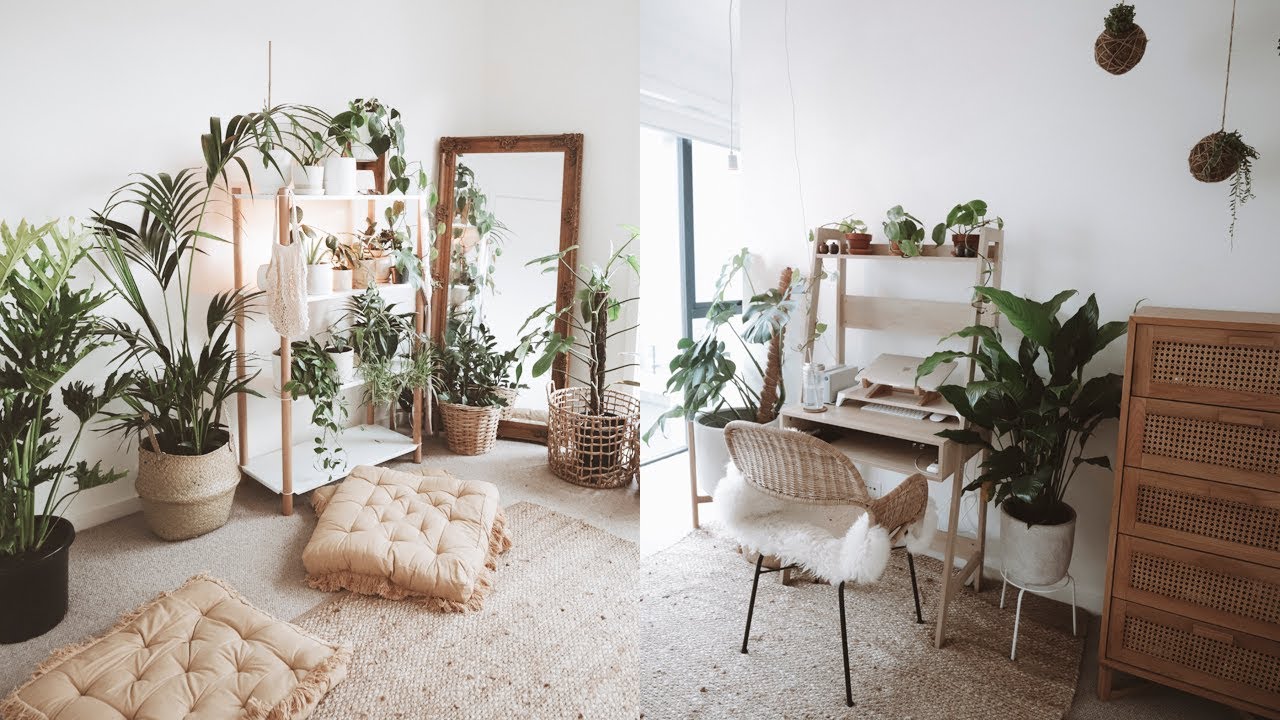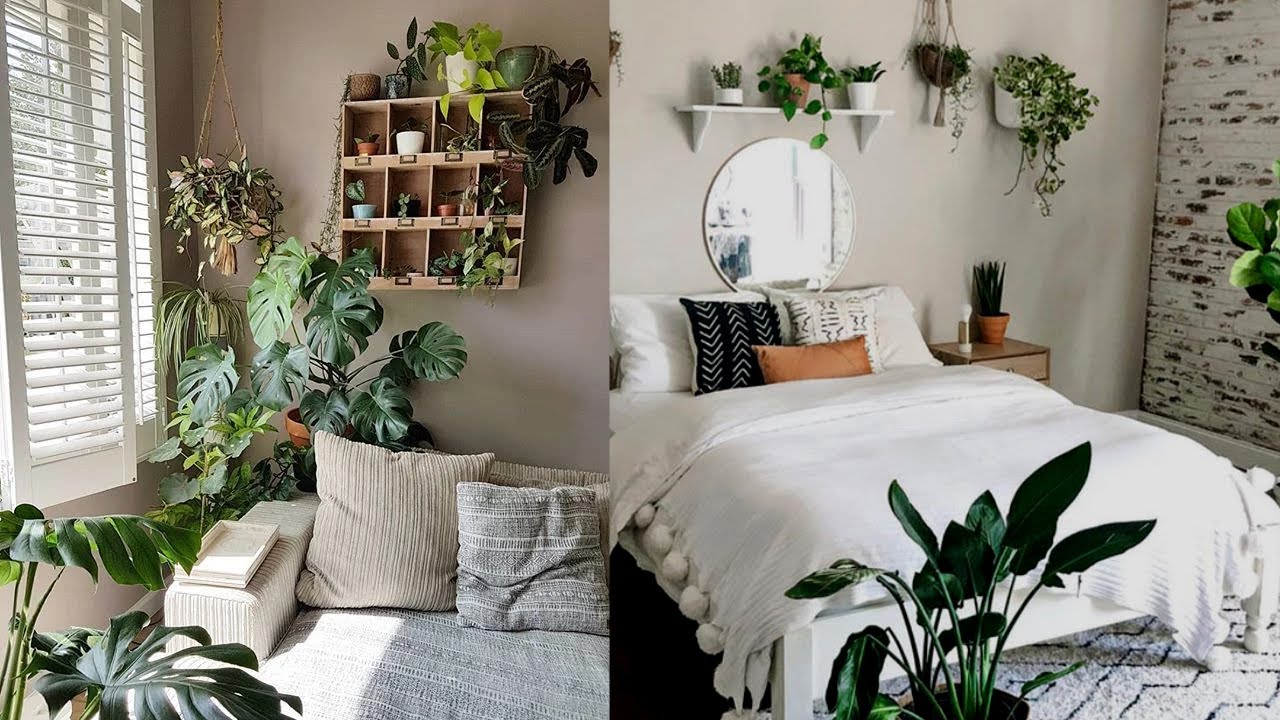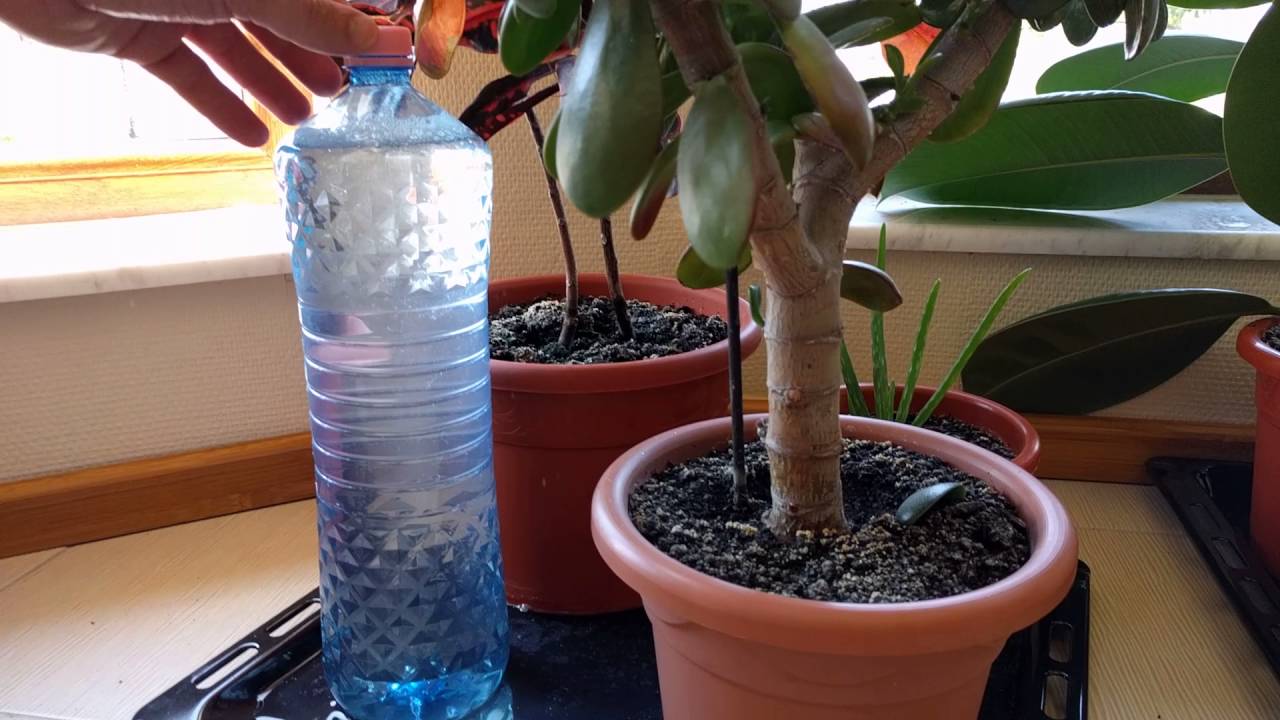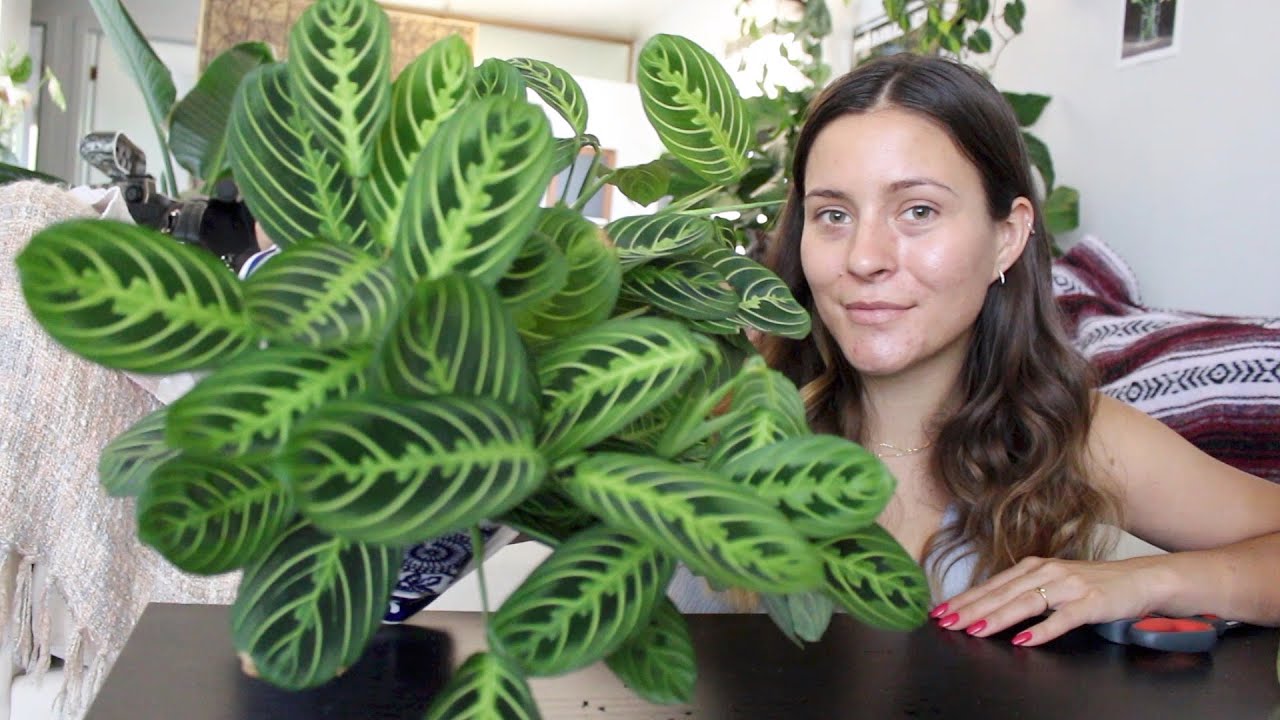If you’re looking for an interesting way to decorate your home, you can try one of these unique houseplants. Some of these plants are incredibly cool, and they will also do a good job of cleaning the air in your home. Interestingly enough, NASA has found that these plants can even clean the air in space! If you’re looking for an unusual plant to decorate your home, check out the coolest one: a hoya with heart-shaped leaves. This unusual plant is particularly popular around Valentine’s Day.
Monstera Sport, also known as the Hole Leaf Monstera, is one of the most unique houseplants. It has holes in its leaves, making it perfect for hanging containers and setting upright on a table. You may have to spend a lot of money on this unique house plant, however – these plants can easily run you more than $700 for a potted plant! You may want to consider other options as well. If you don’t want to spend too much money, there are cheaper alternatives.
Another unique houseplant is the snake plant, a species of succulent native to South Africa. It can survive in low light conditions and only needs occasional watering. Its leaves are green and yellow variegated, and it can grow to be as tall as three feet! Another easy-to-care-for plant is the begonia. This plant has over one thousand species and differs in color and leaf shape. If you care for it well, it will grow into a gorgeous flower!
A goldfish plant can also be a striking addition to your home. With its colorful bracts and leaves, it resembles a school of goldfish! Although a tropical epiphyte, the goldfish plant requires indirect sunlight, high humidity, and airy soil. While the plant can grow to enormous proportions, you should be aware that the milky sap may irritate sensitive skin. It is best to use a plant with a watering schedule that suits you.
A rare peperomia is another great choice. It has unusual markings on its leaves, which are similar to watermelon rinds. It is also low-light-sensitive, making it a perfect houseplant for an office desk. In addition to looking amazing, this plant is easy to care for and requires only a few hours of sunlight a day. You can find a plant on Etsy for anywhere from $50 to over $250.
Another interesting and low-maintenance houseplant is the ZZ plant, also known as the eternity plant. It grows in low light and can even go weeks without water. Its leaves are thick and shiny and almost plastic-like. While the ZZ plant is easy to care for, it can be toxic to pets. A good houseplant for beginners is the ZZ plant. If you want something easy to maintain, this plant is the one for you.
For an unusual plant that will live in a small space, try the Wine Cup. This plant is native to Cape Town, South Africa. Its unique leaves resemble those of a fern. Those unique leaves make it a great houseplant for a crowded house! You may also want to try out other succulent plants. You may not have a chance to find a beautiful plant that grows in your home, but there are some that are really unusual!
Tropical house plants
Whether you’re bringing the rainforest to your home or just looking for a beautiful plant to liven up the living room, there are a variety of tropical house plants that will make any space more interesting. These plants like medium light, moderately moist soil, and home temperatures ranging from 55 to 80 degrees F. Once established, tropical house plants do not need much maintenance. Here are some of our favorites. Let us know what you think in the comments section.
One of the most common and low-maintenance house plants is the philodendron. This tropical plant grows in layers of thin, leathery leaves that give the appearance of a forest. They also enjoy bright, indirect sunlight, although they do not like direct sunlight. Another great choice for low-maintenance tropical house plants is the bird of paradise. These plants grow up to eight feet tall and four feet wide. These beautiful flowers can take years to bloom, so keep an eye on the humidity level of the room.
If you have indirect light in your home, tropical house plants will do well in the bathroom. Their humidity requirements can be increased by misting plants or running a humidifier. Another simple way to boost humidity is to cluster several plants together, or stand the container over a saucer of water. It can also be helpful to invest in an indoor thermometer to measure humidity levels. They’re inexpensive and accurate. Ensure that you mist your plants only when necessary.
A tropical plant with split leaves is the monstera deliciosa. These plants are often referred to as “the Swiss cheese plant” because of their split-leaf pattern. These all-green plants make great decorative pot plants. The monstera can grow up to three feet tall and is capable of producing cream-colored flowers in the summer. The monstera prefers partial sunlight and should be kept out of the reach of children and dogs.
Another small tropical plant is the anthurium plant. This plant comes from Central and the Caribbean. They grow slowly and are commonly nicknamed flamingo plants because of their flamingo-like flower spikes. While they are climbers, most people keep them in pots. In pots, they require a higher humidity level and more filtered light. They benefit from misting daily. When kept indoors, they can thrive and flower for up to three seasons.
Large house plants
Unlike many other houseplants, large leaf house plants do not flower. They are popular among those who enjoy simplicity and uncomplicated design. When you add a large leaf plant to a room, you will find that it changes the atmosphere completely. You’ll think your room has been decorated by a professional interior designer! Plants can also improve your mood and productivity, and some studies have even linked plants with increased productivity. For more information about large house plants, read on!
Some people may be hesitant to grow large houseplants in their homes, but there are several types of plants that are easy to care for and grow. African mask plants, for example, have large leaves that are 12 inches long, and they need bright light to grow properly. Another good option for large houseplants is a philodendron gloriosum, which has velvety deep green leaves with white veining. It complements modern home decor schemes with its lush green leaves and can grow eight feet tall.
Some houseplants with enormous leaves can grow as large as 3 feet. Choosing an appropriate pot for these plants is important as these plants require a large surface area and bright indirect light. They also need high humidity to thrive. For best results, choose a plant that gets bright indirect light and is at least six inches tall. A good houseplant should receive at least six hours of bright indirect light a day, but they need to be well-nourished to grow.
Big plants can be decorative, colourful, or fruiting. Regardless of the variety, they can fill a void instantly with their aesthetics. Often available in large 18cm growing pots, they require more surface space than small plants. And they are more difficult to care for than they are worth. You may want to buy more than one, depending on how difficult it is to care for them. If you’re not sure which one to choose, here are some suggestions.
Consider a houseplant that thrives in filtered sunlight. Aside from being a gorgeous decoration, an elephant-ear plant is mildly poisonous. This plant has big leaves and can fill a large space. English ivy will grow just about anywhere and will cling to anything. You might also want to consider a ficus tree. These houseplants can survive in a variety of conditions, from shade to direct sunlight.
A colorful Croton is another great houseplant for indoors. It can reach a height of eight feet, but usually only grows half that size indoors. Make sure you get plenty of indirect light or it will burn its leaves. A colorful croton is an excellent choice for those looking for a bold accent plant, but it will take some space! If you have enough light, this plant will reward you with striking blooms throughout the seasons.
Monstera deliciosa, or the Swiss-cheese plant, is an amazing choice for a large houseplant. It has huge, leathery leaves that grow three to four feet long. While it’s mildly toxic to dogs and cats, it’s also extremely low-maintenance. A few weekly waterings and a mist every now and then will help keep it healthy. Also, it can tolerate a wide range of environmental conditions.
Small house plants
If you’re looking for small house plants that can bloom year-round, you should try African Violets. These plants are compact, but feature stunning blooms. Their white, pink, and red varieties can keep you in bloom all year long. Poinsettias, one of the most popular house plants in the world, are also compact and come in pink, white, and traditional red varieties. These plants are also known for their prickly leaves, which can be very attractive to visitors.
Cacti are also beautiful choices if you want a modern house plant, but don’t have the space for a large, sprawling plant. Cacti grow well without much attention, and do well in warmer climates. Air plants don’t require soil to grow, but they can benefit from a bit of extra water and nutrients. You can spray these plants with water and fertilizer once in a while to add extra nutrition.
Orchids are a fascinating group of plants. With more than 30,000 species in existence, they’re sure to find the right one to suit your room’s theme. Pink kalanchoe, for example, is a favorite of many people. It comes in rustic troughs and delicate arrangements. Besides being pretty, these small houseplants can reduce the effects of indoor air pollution. They remove carbon dioxide and volatile organic compounds, which are both known to affect the way we think and work. Small indoor houseplants also boost humidity, which helps reduce airborne microbes.
If you’re looking for small house plants with a colorful appearance, you can try African violets. These flowers have a beautiful flower and can survive in low light conditions. They’re also known as “faithful” plants and can tolerate irregular watering sessions. NASA has even discovered that African violets purify the air and remove carbon dioxide in the night. You can read more about them in our peace lily care guide.
If you’re looking for low-maintenance small houseplants, you might want to try a spider plant. These small succulents grow from 12 to 18 inches tall and don’t require much care. Spider plants prefer indirect light and should never be kept in direct sunlight. They require a well-draining soil, but don’t overwater them. If you’re not sure which type of plant is right for your room, you should choose several different types.
Chinese money plants are popular small houseplants and they look stunning in window sill pots. Their unique flat leaves look great alone or in groups with other plants. The Chinese money plant can survive in almost any kind of environment, from high humidity to low light, so they’re a great choice. Chinese money plants are also easy to care for, and they’re often propagated from small clumps. If you’re looking for a houseplant that won’t require a lot of care, you’ll want to invest in a variety that can grow for many years.
A flowering plant that grows on the sides of a pot, kalanchoes can make a statement with their beautiful blooms. They’re part of the succulent family and grow best in a dry soil. Another succulent plant to consider is the lithops, or living stones. They closely resemble pebbles and small stones. They can survive in hot climates and are low-maintenance, which makes them great for showing off.
Plant growth stages
When plants grow, they go through several different stages. Each stage requires special nutrients, such as nitrogen. These nutrients help plants develop chlorophyll, which provides essential sugars for their metabolism. They also need water and carbon dioxide to sustain the process. Plants that are not getting enough of these substances will not grow properly. The next two slides show the answers to these questions. Here’s a brief explanation of each stage and its importance.
Annual plants are characterized by their growth stages. They begin by producing hormones and preparing to bear flowers. They then put their energy into ripening seeds. During this stage, many gardeners harvest their crops. If their plants produce unusual harvests, they should save their seeds as seeds. In addition, annual plants will die if the weather becomes too cold. Biennial plants, on the other hand, adopt different growth stages.
In this book, the six main plant growth stages were identified. Stages include sprouting, cataphylls, plant appearance, replacement corms, and corm dormancy. Each of these stages is further broken down into secondary stages. The book also includes descriptive keys with illustrations that help the reader understand the system. The stages are easy to remember and will help in understanding the life cycle of the plants. If you’re a farmer who grows annual crops, this is a good guide to know.
Once the seedlings are strong and have the proper conditions for successful flowering, they begin to develop a shoot. The shoot develops tiny leaves and roots. As the seedling grows, it matures into a full-fledged plant that includes true leaves and roots. However, the growth of these plants varies from one species to another. When you know what stage a plant is in, you can look for common patterns, and make appropriate decisions based on the information you have.
This stage of plant growth is distinguished from the inflorescence visible stage (sensu Poaceae). The latter includes all plants that have inflorescence formation and visibility. The reproductive phase begins during the vegetative phase but many of the developmental events take place later on and only manifest as visible morphological markers. During the vegetative phase, many of these developmental events begin, and then come into fruition during the reproductive phase.
A short day exposure promotes flowering, whereas long-day exposure delays the transition from the vegetative shoot apical meristem to the reproductive inflorescence meristem. Long-day exposure delays the transition, so that the inflorescence, which is also known as the heading stage, is visible later. Using the GO annotations of gene expression, it is possible to build up a gene expression profile for each of these stages.
There are four basic growth stages: vegetative growth, reproductive growth, and flowering. Each of these stages has a substage, which is related to another process. These substages include root emergence, shoot emergence, and imbibition. Despite their overlapping nature, these processes have different rates between species and cultivars of the same species. The following stage is a brief description of these stages and their significance for plants.
